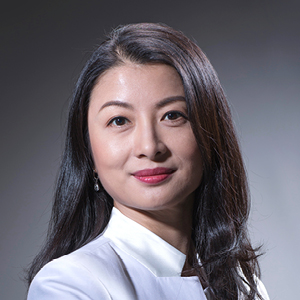Industry Thought Leadership
EXPLORATION IN THE MIDDLE EAST: The Next Step in a Long Tradition
December, 2017Since Huawei began operating in the Middle East in the early 2000s, we have been passionate advocates of ICT innovation. Through our investment in education, promotion of digitalization, and establishment centers for collaborative creation, we have pushed back the boundaries of knowledge. The Middle East has been a partner in these endeavors, providing Huawei with the resources and talent needed to turn our vision of a Better Connected World into reality. This is not surprising, given the Arab world’s rich heritage of trailblazing inventions, dating back millennia. Huawei’s ideals of innovation, openness and perseverance have been cornerstones of the region since the first humans learned to plant crops and write script in Mesopotamia, laying the foundation of human civilization.
Technological progress is an arduous process. Each generation chips away at the infinite block of human ignorance, struggling to uncover a nugget of truth to share with the world. In this laborious way, since the dawn of time people have been building up a vast repository of knowledge. Without first laying the foundation of exploration in basic science, none of today’s technology would be possible. And the Middle East produced one of the fundamental building blocks of modern technology: algebra.
The word algebra comes from ninth-century Persian mathematician Muammad ibn Mūsā al-Khwārizmī, who wrote a treatise entitled “Kitab al-Jabr I-Mugabala,” or “The Compendious Book on Calculation by Completion and Balancing.” His revolutionary insights into a mathematics based on numbers rather than shapes (geometry in the Greek tradition) transformed how scholars approached arithmetic and paved the way for modern mathematics. Like most paradigm-shifting discoveries, the idea of basing calculations on numbers seems obvious now. Yet it took the work of a Persian savant to light the path forward for future generations of scientists and mathematicians. Isaac Newton once attributed his visionary insights to “standing on the shoulders of giants.” In the case of mathematics, we are all standing on the shoulders of Muammad ibn Mūsā al-Khwārizmī.
The invention of algebra makes a good narrative, especially in a world that celebrates the lone genius. Through textbooks and fiction, we mythologize our Isaac Newtons, our Albert Einsteins, our Thomas Edisons. Yet the reality is that most innovation comes not from a single flash of genius, but as a result of long-term collaboration among experts. Huawei believes that fostering openness and cooperation is key to technological progress. When we pool our knowledge, our collective wisdom produces something greater than the sum of its parts. For this reason, Huawei has nurtured an industry ecosystem in the Middle East that is open, diverse, and dynamic, incorporating external resources and building symbiotic relationships to benefit the whole community through digitalization.
This understanding of the need for cooperation among experts is not new in the Arab world. We can trace its roots back to the ninth century, when Fatima Al-Fihri opened the world’s first university in Fez, Morocco. The tireless quest for knowledge is central to the Muslim faith, and Fatima Al-Fihri was a pious woman who wanted to create a center where scholars could share their expertise on matters as diverse as theology, logic, arithmetic, geography, and medicine. The center quickly established itself as a haven of learning and innovation, and its reputation lured scholars from far and wide. Twelve hundred years later, the university is still in operation, a symbol of Arabs’ unwavering dedication to enlarging and widening the world’s pool of wisdom.
Unwavering dedication is necessary in the quest for knowledge. The path to discovery is littered with flawed theorems and disproved hypotheses, and an explorer could easily be discouraged from persevering in the face of such setbacks. But failure is as commendable as success. Heroes aren’t those who avoid failure, but those who extract from it the elements of success. They should be recognized for their work and encouraged to keep exploring. Failures accomplish a valuable task: by eliminating the ideas that flop, they bring us closer to finding those that will succeed.
The experiments of Abbas ibn Firnas vividly demonstrate how failure can lead to success. Firnas was a ninth-century scientist and inventor reputed to be the first human to fly. He designed a flying machine which he donned before jumping from a cliff. Witnesses said he flew a long way before a hard landing that injured his back. Firnas’s winged apparatus is thought to have inspired Leonardo da Vinci’s later attempts to create flying machines. His failure was a vital step on the path to creating the airplanes of today.
Innovation, openness, perseverance: each is a pillar of exploration. By steadfastly relying on these pillars, Huawei has grown from humble beginnings to become one of the world’s leading ICT companies. Yet we will never grow complacent. We will keep pushing the boundaries of knowledge, and we are proud to do so with the collaboration of our Arab partners—a people whose heritage is steeped in a culture of innovation.

